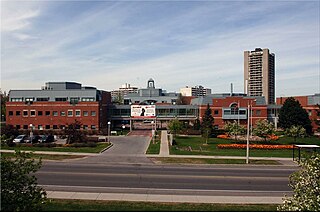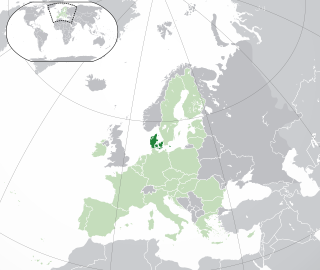
A blood donation occurs when a person voluntarily has blood drawn and used for transfusions and/or made into biopharmaceutical medications by a process called fractionation. Donation may be of whole blood, or of specific components directly (apheresis). Blood banks often participate in the collection process as well as the procedures that follow it.
Men who have sex with men (MSM) are men who engage in sexual activity with other men, regardless of their sexual orientation or sexual identity. The term was created by epidemiologists in the 1990s, to better study and communicate the spread of sexually transmitted infections such as HIV/AIDS between all sexually active males, not strictly those identifying as gay, bisexual, pansexual or various other sexualities, but also for example male prostitutes. The term is often used in medical literature and social research to describe such men as a group. It does not describe any specific kind of sexual activity, and which activities are covered by the term depends on context. The alternative term "males who have sex with males" is sometimes considered more accurate in cases where those described may not be legal adults.

Canadian Blood Services is a non-profit charitable organization that is independent from the Canadian government. The Canadian Blood Services was established as Canada's blood authority in all provinces and territories except for Quebec in 1998. The federal, provincial and territorial governments created the Canadian Blood Services through a memorandum of understanding. Canadian Blood Services is funded mainly through the provincial and territorial governments.

Lesbian, gay, bisexual, and transgender (LGBT) rights in the Republic of Ireland are regarded as some of the most progressive in Europe and the world. Ireland is notable for its transformation from a country holding overwhelmingly conservative attitudes toward LGBT issues, in part due to the opposition by the Roman Catholic Church, to one holding overwhelmingly liberal views in the space of a generation. In May 2015, Ireland became the first country to legalise same-sex marriage on a national level by popular vote. The New York Times declared that the result put Ireland at the "vanguard of social change". Since July 2015, transgender people in Ireland can self-declare their gender for the purpose of updating passports, driving licences, obtaining new birth certificates, and getting married. Both male and female expressions of homosexuality were decriminalised in 1993, and most forms of discrimination based on sexual orientation are now outlawed. Ireland also forbids incitement to hatred based on sexual orientation. Article 41 of the Constitution of Ireland explicitly protects the right to marriage irrespective of sex.

In England, blood and other tissues are collected by NHS Blood and Transplant (NHSBT). NHSBT Blood Donation was previously known as the National Blood Service until it merged with UK Transplant in 2005 to form a NHS special health authority. Other official blood services in the United Kingdom include the Northern Ireland Blood Transfusion Service, the Scottish National Blood Transfusion Service and the Welsh Blood Service.

The rights of lesbian, gay, bisexual, and transgender (LGBTQ) people in the United Kingdom of Great Britain and Northern Ireland have developed significantly over time. Today, lesbian, gay and bisexual rights are considered to be advanced by international standards.
Australian Red Cross Lifeblood, simply known as Lifeblood, is a branch of the Australian Red Cross responsible for the collection and distribution of blood and biological products in Australia. Lifeblood employs around 3,700 employees across scientific, clinical and support services, processing over one and a half a million blood donations each year. Lifeblood is primarily funded by the Australian Government and state and territory governments.

Danish lesbian, gay, bisexual, and transgender (LGBT) rights are some of the most extensive in the world. In 2023, ILGA-Europe ranked Denmark as the third most LGBT-supportive country in Europe. Polls consistently show that same-sex marriage support is nearly universal amongst the Danish population.
The Irish Blood Transfusion Service (IBTS), or Seirbhís Fuilaistriúcháin na hÉireann in Irish, was established in Ireland as the Blood Transfusion Service Board (BTSB) by the Blood Transfusion Service Board (Establishment) Order, 1965. It took its current name in April 2000 by Statutory Instrument issued by the Minister for Health and Children to whom it is responsible. The Service provides blood and blood products for humans.

Lesbian, gay, bisexual, and transgender (LGBTQ) rights in the Netherlands are among the most advanced in the world. Same-sex sexual activity was legalized in 1811 after France invaded the country and installed the Napoleonic Code, erasing any remaining sodomy laws. No more sodomy laws were enacted after the country received independence. An age of consent equal with that of heterosexual activity was put in place in 1971. During the late 20th century, awareness surrounding homosexuality grew and society became more tolerant of gay and bisexual people. The changes eventually led to homosexuality's declassification as a mental illness in 1973 and a ban on discrimination based on sexual orientation in the military. The Equal Treatment Act 1994 bans discrimination on account of sexual orientation in employment, housing, public accommodations, and other areas. This was extended in 2019 to include discrimination based on gender identity, gender expression and sex characteristics. After the country began granting same-sex couples registered partnerships benefits in 1998, the Netherlands became the first country in the world to legalize same-sex marriage in 2001. Same-sex joint and stepchild adoption are also permitted, and lesbian couples can access IVF as well.
The New Zealand Blood Service is the provider of blood services for New Zealand. The service is a Crown entity responsible to New Zealand's Parliament and is governed by a Board appointed by the Minister of Health.
Many countries have laws, regulations, or recommendations that effectively prohibit donations of blood or tissue for organ and corneal transplants from men who have sex with men (MSM), a classification irrespective of their sexual activities with same-sex partners and of whether they identify themselves as bisexual or gay. Temporary restrictions are sometimes called "deferrals", since blood donors who are found ineligible may be found eligible at a later date. However, many deferrals are indefinite meaning that donations are not accepted at any point in the future, constituting a de facto ban. Even men who have monogamous relations with their same-sex partners are found ineligible.

Lesbian, gay, bisexual, and transgender (LGBT) people in Northern Ireland enjoy most of the same rights as non-LGBT people. However, the advancement of LGBT rights has traditionally been slower than the rest of the United Kingdom, with the region having lagged behind England, Scotland, and Wales. Northern Ireland was the last part of the United Kingdom where same-sex sexual activity was decriminalised, the last to implement a blood donation “monogamous no waiting period” policy system for men who have sex with men and, after intervention by the Parliament of the United Kingdom, the last to allow same-sex marriage. Compared to the neighbouring Republic of Ireland, all major LGBT rights milestones had been reached earlier in Northern Ireland, with the exception of same-sex marriage. Homosexuality was decriminalised in Northern Ireland a decade earlier and civil partnerships were introduced six years earlier.
Discrimination against people with HIV/AIDS or serophobia is the prejudice, fear, rejection, and stigmatization of people with HIV/AIDS. Marginalized, at-risk groups such as members of the LGBTQ+ community, intravenous drug users, and sex workers are most vulnerable to facing HIV/AIDS discrimination. The consequences of societal stigma against PLHIV are quite severe, as HIV/AIDS discrimination actively hinders access to HIV/AIDS screening and care around the world. Moreover, these negative stigmas become used against members of the LGBTQ+ community in the form of stereotypes held by physicians.

In the District of Columbia, lesbian, gay, bisexual, and transgender (LGBTQ) people enjoy the same rights as non-LGBTQ people. Along with the rest of the country, the District of Columbia recognizes and allows same-sex marriages. The percentage of same-sex households in the District of Columbia in 2008 was at 1.8%, the highest in the nation. This number had grown to 4.2% by early 2015.

The South African National Blood Service (SANBS) is a non-profit organisation that provides human blood for transfusion that operates in South Africa, with the exception of the Western Cape, which has its own blood service. The head office of the SANBS is in Constantia Kloof, Gauteng, near Johannesburg, but there are blood collection operations in eight of the nine provinces. Western Cape has a separate blood centre, the Western Cape Blood Service. SANBS was founded in 2001 from a merger of seven blood centres, and was embroiled in controversy in 2004 over a policy of racial profiling for blood safety.

Lesbian, gay, bisexual, and transgender (LGBT) rights in Guam have improved significantly in recent years. Same-sex sexual activity has not been criminalized since 1978, and same-sex marriage has been allowed since June 2015. The U.S. territory now has discrimination protections in employment for both sexual orientation and gender identity. Additionally, federal law has provided for hate crime coverage since 2009. Gender changes are legal in Guam, provided the applicant has undergone sex reassignment surgery.

Lesbian, gay, bisexual, and transgender (LGBTQ) rights in the British Crown dependency of Jersey have evolved significantly since the early 1990s. Same-sex sexual activity was decriminalised in 1990. Since then, LGBTQ people have been given many more rights equal to that of heterosexuals, such as an equal age of consent (2006), the right to change legal gender for transgender people (2010), the right to enter into civil partnerships (2012), the right to adopt children (2012) and very broad anti-discrimination and legal protections on the basis of "sexual orientation, gender reassignment and intersex status" (2015). Jersey is the only British territory that explicitly includes "intersex status" within anti-discrimination laws. Same-sex marriage has been legal in Jersey since 1 July 2018.
This is a list of notable events in the history of LGBT rights that took place in the year 2016.
This is a list of notable events in the history of LGBT rights that took place in the year 2020.














